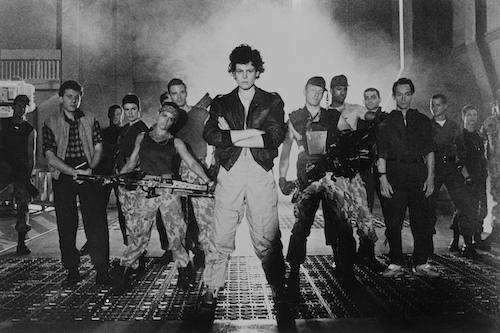
April 26th marks a special date on the sci-fi movie calendar: Alien Day. It lines up with the fateful planet LV-426 from which the terrifying Alien mythology sprang – remember, this is the planetoid where the ill-fated Nostromo encountered the face-hugger, leading to the eventual eruption of the dreaded xenomorph.
The Extended Cut of James Cameron's sequel Aliens screens at Cineworld this Alien Day. So, stay frosty and alert with the following fun facts about the latter to get you locked and loaded for the big-screen return of a sci-fi masterpiece.
-
In 1983, incoming Fox Studio President Joe Wizan commissioned James Cameron to write a treatment for Alien sequel Aliens, based on the strength of Cameron's in-development script for The Terminator
-
Original Alien producers Dave Giler and Walter Hill urged Cameron to include Sigourney Weaver's Ripley and soldier characters
-
However, it wasn't until Lawrence Gordon took over from Wizan that the project actively moved forward, Cameron utilising a delay in The Terminator's production schedule to refine his script treatment
-
Following the eventual and surprise success of The Terminator, released in 1984, Cameron was hired to both write and direct Aliens
-
Cameron's aim was to fuse the haunted house horror atmosphere of Scott's original with the notion of infantry in space, an idea he'd always wanted to pursue
-
Weaver's agent demanded an especially high salary for her return, and it was only when Cameron bluffed, threatening to rewrite the script without Ripley's involvement, that a sufficient deal was reached
-
The actors playing the colonial marines, including Michael Biehn (Hicks), Bill Paxton (Hudson) and Jeanette Goldstein (Vasquez), were trained by former Vietnam veteran Al Matthews who plays Sergeant Apone in the movie
-
The idea was to foster greater camaraderie between the military characters and therefore establish a more realistic sense of distance from the likes of Weaver and Paul Reiser (playing company man Burke)
-
Michael Biehn was a late replacement for actor James Remar who was forced to leave the production after being arrested for drug possession
-
Biehn, Paxton and actor Lance Henriksen, who plays the ultimately benevolent android Bishop, had all worked with Cameron on The Terminator
-
Stephen Lang auditioned for the role of Hicks; Lang would eventually work with Cameron on the Avatar movies
-
Filming took place at Pinewood Studios in the UK, famous for the 007 Sound Stage that was first built for 1977's The Spy Who Loved Me
-
Tensions ran high between Cameron and the largely British crew (who believed him to be inexperienced) to the extent that original cinematographer Dick Bush was replaced by Adrian Biddle
-
In response to the firing, the entire production crew walked off the set, prompting an intervention between Cameron and his producer/partner Gale Anne Hurd
-
Although tensions dissipated somewhat, Cameron would become infuriated by the unionised mandate for crew tea breaks in the middle of the day
-
The alien nest was filmed in the decommissioned Acton Lane Power Station in London, and the set was later used for the power planet sequence in Tim Burton's Batman (1989)
-
Many of the actors improvised back on character backstories discussed with Cameron
-
For example, Hudson's classic line "Game over, man! Game over!" stemmed from the character's backstory where he was trained on simulators
-
Newt actor Carrie Henn found it hard to act afraid of the aliens (since she was fond of the actors in the suits) and imagined a dog was chasing her
-
Upon the conclusion of principal photography, 20th Century Fox demanded the movie be cut down to less than two hours
-
At Cameron's insistence, the initial theatrical edit came out at two hours, and seventeen minutes
-
Several sequences that were deleted from the theatrical cut later made it into the extended edition, including Ripley's tragic revelation about her daughter who has aged and passed away during her cryosleep process
-
James Horner was brought to Abbey Road Studios to score the movie and later described it as "a nightmare" as the crew was still shooting when he was committed to begin work on the music
-
Despite the stresses and strains, Horner was Oscar-nominated for his work, as was Weaver (her first ever nod) in a rare moment of artistic recognition for the science-fiction genre
-
Aliens was a critical, commercial and artistic success upon its release in 1986, grossing upwards of $130 million against its $18.5 million budget
-
The movie also claimed two Oscars for Best Sound Effects Editing and Best Visual Effects
Are you taking the express elevator all the way to Cineworld this Alien Day? If so, click the link below to claim your tickets for Aliens.


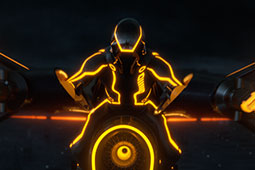
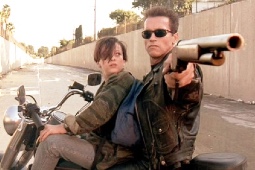
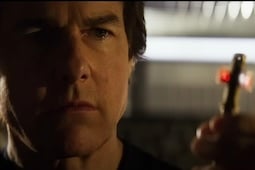
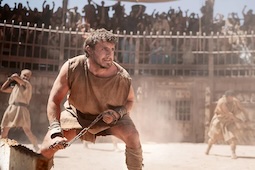
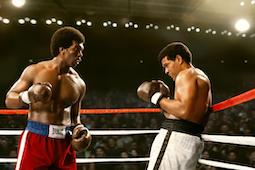


.jpg)
.png)





